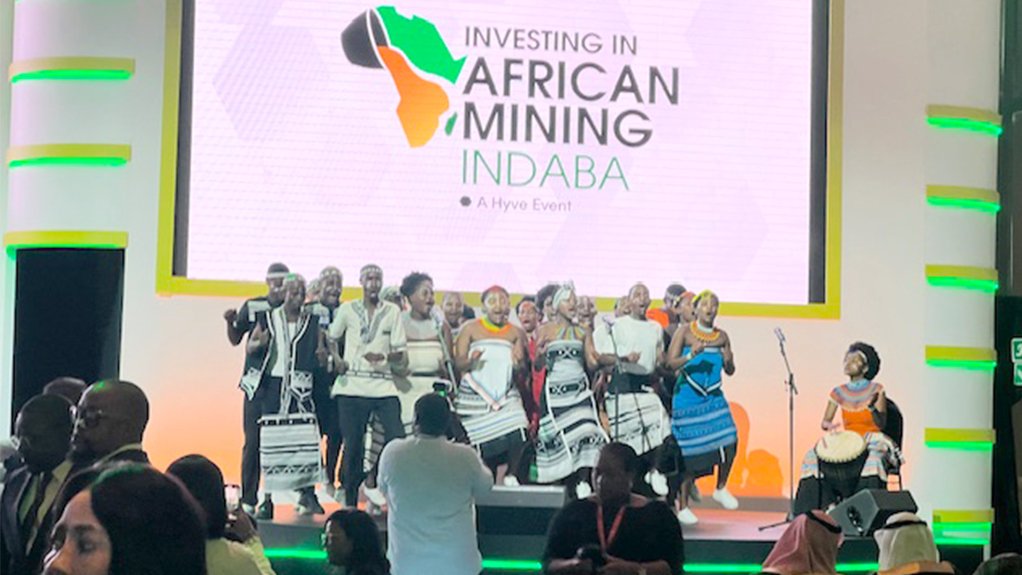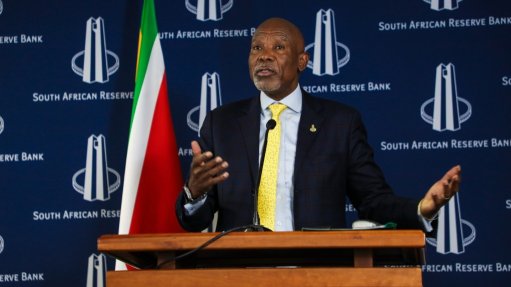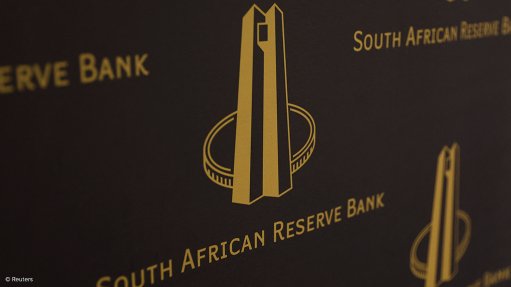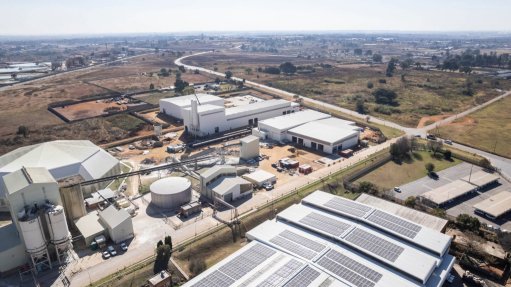Adding value to metals and minerals in Africa emphasised as a must at Mining Indaba


Beneficiation of African metals and minerals in Africa is being demanded as an absolute must.
Photo by Creamer Media
JOHANNESBURG (miningweekly.com) – Investing in African Mining Indaba presenters on Monday spoke repeatedly of the need for Africa to add value to its metals and minerals on the continent itself rather than allowing this to take place elsewhere.
Digging African raw ore out of African ground and shipping it to richer countries for processing was displayed as a practice that must end as fast as possible.
All African countries are now being urged to process mined material in Africa for the benefit of the continent amid the reality of the continent hosting significant reserves of industrially important minerals that include manganese, copper, nickel, cobalt, titanium, vanadium, lithium, and rare earths, as well as most of the world’s chromium and platinum group metals (PGMs).
With the growing demand for these minerals, it was repeatedly posited on day-one of Investing in African Mining Indaba that the continent has a duty to ensure that its people share in the wealth that African countries host.
African leaders were urged to take charge of the growing demand for critical endowments to implement Africa’s industrialisation, South Africa’s re-industrialisation and put an end to the export of raw ore.
On the South African front, it was pointed out that South Africa’s PGM production alone in 2021 reached a decade-high 285 t and notwithstanding the decline in the PGM basket price, in 2023, South Africa was the world’s largest producer of PGMs, accounting for 73% of global new mine supply of platinum, 38% of palladium and 81% of rhodium supply to global commodity markets.
Moreover, South Africa has about 37% of the world’s manganese ore reserves, and also leads in manganese production with an output of 7.2-million tonnes in 2023.
But despite the country formerly earning significant value-added revenue by processing the ore domestically into ferromanganese, only 2% of the major manganese ore available is now processed in South Africa.
The same applies to the processing of the large volumes of mined chromium into ferrochrome, also a strong former South African-held market that was badly impacted by the high prices that Eskom began charging for electricity
“We’re mindful that for local beneficiation to succeed, we need to guarantee consistent, reliable, and affordable electricity supply. Despite the recent setback, I can assure you that, now that we have reached over nine months with no electricity interruptions, government is working on measures to reduce administered prices, and in so doing reduce the cost of doing business in South Africa," South African Minerals and Petroleum Resources Minister Gwede Mantashe promised during his keynote Mining Indaba presentation covered by Mining Weekly.
“We’re also considering sustaining commodity-linked tariffs, as well as consolidating and applying incentives and other existing financial instruments to support and encourage beneficiation,” Mantashe revealed.
What is being urged by African leaders is for mineral beneficiation to extend as close as possible to point of production so that the continent can put an end to the export of wealth from communities that are in significant need of it.
“We’re, however, alive to the fact that there can be no mining or beneficiation without exploration; hence, our steadfastness to reignite exploration investment and, in so doing, turn South Africa into an exploration site,” Mantashe disclosed.
“Our efforts in this regard are beginning to take shape, as evidenced by progress made since we launched the country’s exploration fund during the last Mining Indaba.
“During the previous Mining Indaba, we committed to putting in place a new mining licensing system to enhance efficiency and transparency in our systems and thereby guarantee regulatory certainty in the South African mining Industry.
“I can report to you that the department and the PMG Consortium are currently finalising the design and configuration phase which is at the heart of the new system. This phase covers all aspects of mining regulations, value chain including, inter alia, the client management functionality, rights application submission and processing, and the rights application tracking functionality,” Mantashe added.
“This phase of the project is anticipated to be completed in the next few weeks, and will, thereafter, be followed by the testing and deployment of the new system into the department’s ICT system. Despite the ongoing work to develop the new mining licensing system, I can also report to you that the department continues to clear the backlog in prospecting and mining applications. Between our last meeting here and December 2024, the department processed and finalised 114 mining rights, 982 prospecting rights, and 385 mining permits and ancillaries,” Mantashe reported.
In his keynote address to the Investing in African Mining Indaba on Monday, Anglo American CEO Duncan Wanblad made the point that South Africa has been at the heart of Anglo for more than a century and would continue to be so, given the London- and Johannesburg-listed company's physical and economic footprint and the wider role that we play in the country’s progress.
Wanblad also expressed the view that South Africa’s presidency of the G20 this year provided a valuable platform to champion the broader Africa agenda and that Anglo was supporting the country’s leadership to facilitate these important dialogues and events.
Alongside the G20 is the ever-critical B20, the business twenty, where Wanblad, Nolitha Fakude and Mpumi Zikalala will be co-chairing some of the workstreams and serving on the B20’s advisory council.
"In many ways, what’s happening in South Africa also exemplifies the opportunities and challenges we see across the continent.
"To future-proof African mining, we must look beyond any singular country or moment in time and instead ask more broadly how it could sustain continental growth for many generations to come," Wanblad added.
Article Enquiry
Email Article
Save Article
Feedback
To advertise email advertising@creamermedia.co.za or click here
Comments
Research Reports
Projects
Latest Multimedia
Latest News
Showroom
Astore Keymak is one of South Africa’s leading suppliers of high-quality Thermoplastic Pipeline Systems, with branches in the major provinces.
VISIT SHOWROOMWe at Hawk High Pressure Pumps specialise in industrial pumps and pumping systems. Our high pressure washing equipment is locally manufactured and...
VISIT SHOWROOMPress Office
Announcements
What's On
Subscribe to improve your user experience...
Option 1 (equivalent of R125 a month):
Receive a weekly copy of Creamer Media's Engineering News & Mining Weekly magazine
(print copy for those in South Africa and e-magazine for those outside of South Africa)
Receive daily email newsletters
Access to full search results
Access archive of magazine back copies
Access to Projects in Progress
Access to ONE Research Report of your choice in PDF format
Option 2 (equivalent of R375 a month):
All benefits from Option 1
PLUS
Access to Creamer Media's Research Channel Africa for ALL Research Reports, in PDF format, on various industrial and mining sectors
including Electricity; Water; Energy Transition; Hydrogen; Roads, Rail and Ports; Coal; Gold; Platinum; Battery Metals; etc.
Already a subscriber?
Forgotten your password?
Receive weekly copy of Creamer Media's Engineering News & Mining Weekly magazine (print copy for those in South Africa and e-magazine for those outside of South Africa)
➕
Recieve daily email newsletters
➕
Access to full search results
➕
Access archive of magazine back copies
➕
Access to Projects in Progress
➕
Access to ONE Research Report of your choice in PDF format
RESEARCH CHANNEL AFRICA
R4500 (equivalent of R375 a month)
SUBSCRIBEAll benefits from Option 1
➕
Access to Creamer Media's Research Channel Africa for ALL Research Reports on various industrial and mining sectors, in PDF format, including on:
Electricity
➕
Water
➕
Energy Transition
➕
Hydrogen
➕
Roads, Rail and Ports
➕
Coal
➕
Gold
➕
Platinum
➕
Battery Metals
➕
etc.
Receive all benefits from Option 1 or Option 2 delivered to numerous people at your company
➕
Multiple User names and Passwords for simultaneous log-ins
➕
Intranet integration access to all in your organisation



















